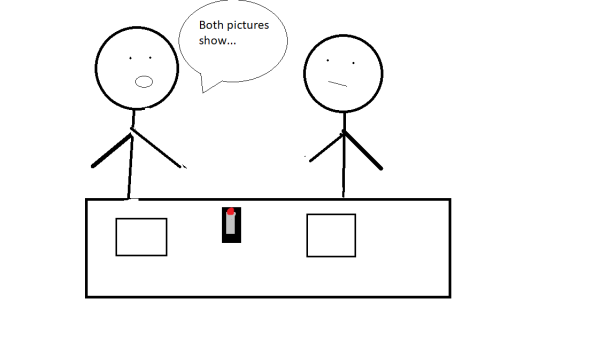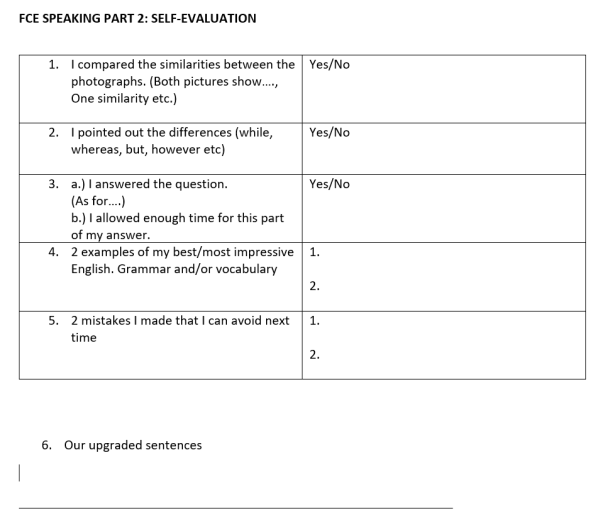Speaking by its very nature is ephemeral. As a teacher, it’s the skill that I find most difficult to correct. Do I interrupt and impact on fluency? Or should I wait until the end and board some of the most common errors? Either way, I seem to correct the same errors again and again. The students can often identify the mistakes they’ve made relatively easily but they continue to produce the errors. Those are just the grammar and vocabulary issues. What about the task itself? In a group of 12 students, when perhaps 6 people are completing the task simultaneously, I can’t tune in to them all at the same time. I often ask the partner to evaluate, but 99% of the time they lack the confidence to say anything other than it was ‘good’.
Ideally, I’d love to give detailed feedback for each individual every time we do this. I do like students to send me recordings so I can correct them and provide this. I’ve received students work via Padlet, Fotobabble and email. This, however, can be time-consuming for both me and them. With students whose motivation is low, the only thing I receive is the reason why it was impossible to send it to me. So, I’ve been trying to get students to self-evaluate and really listen to what they are doing/saying. The idea is that they work in pairs but they record their individual speaking on their phones. I give them a self-evaluation form so they can listen again with their partner and together assess what they have just heard.

The rationale is
- The evaluation is almost immediate. The students can listen to their task while it is fresh in their minds.
- Students are encouraged to listen and evaluate their own mistakes. I believe that identifying your own mistake is, in some ways, more beneficial than having it corrected for you. I’m still available and students can call me over to listen with them if they have any doubts.
- By working closely with a partner, they can not only assess their own work but also that of their classmate.
- I hope to draw the students’ attention to their progress and encourage them to show a higher level of language.
Here is an example of the type of form that I ask the students to complete in order to achieve the rationale listed above.
Point 6 on the evaluation sheet, where students are invited to work together to upgrade their language, comes from a recommendation made by my former colleague, Mark. The idea is that the pairs work together and script/plan a sentence they could have included to really show off their language skills. For example, when answering a question about why people would take photographs in various situations. With some input from me, the students upgraded: ‘The persons want to remember the moment’ to ‘It’s possible that in both situations the people involved want to capture the moment’. This was part of an observed lesson and my mentor, Chris Roland, suggested a nice extension activity which involves students transcribing their recordings Here is the worksheet (B2 speaking).
The example here focuses on the FCE exam but the idea can be easily adapted for other purposes. I created a similar document for PET speaking part 2
This isn’t the first time I’ve worked with students’ recordings in order to get them to pay attention to their language and/or the task. Students have worked on scripting and providing their own tutorials breaking down various speaking exam tasks. You can read about using this approach to FCE speaking part 4 here and for the PET speaking part 2 here.

A well thought out way of encouraging students
LikeLiked by 1 person
Thank you!
LikeLike
A really good idea to record students, I’m going to try this!
LikeLike
Thank y
ou Gemma. I’m really pleased you found it useful. Let me know how you get on.
LikeLike
Love it! Gonna use that self-assessment form with my FCE group after Easter.
LikeLike
Hi Tim. Thanks for your comment and for sharing the post. It’s much appreciated. Let me know how it goes!
LikeLike
Reblogged this on Tim's Free English Lesson Plans.
LikeLiked by 1 person
Brilliant! Am gonna give it a go! Thank you 🙂
LikeLiked by 1 person
Thanks very much for commenting Michelle. I hope it works for you! I’d be interested to hear how you get on.
LikeLike